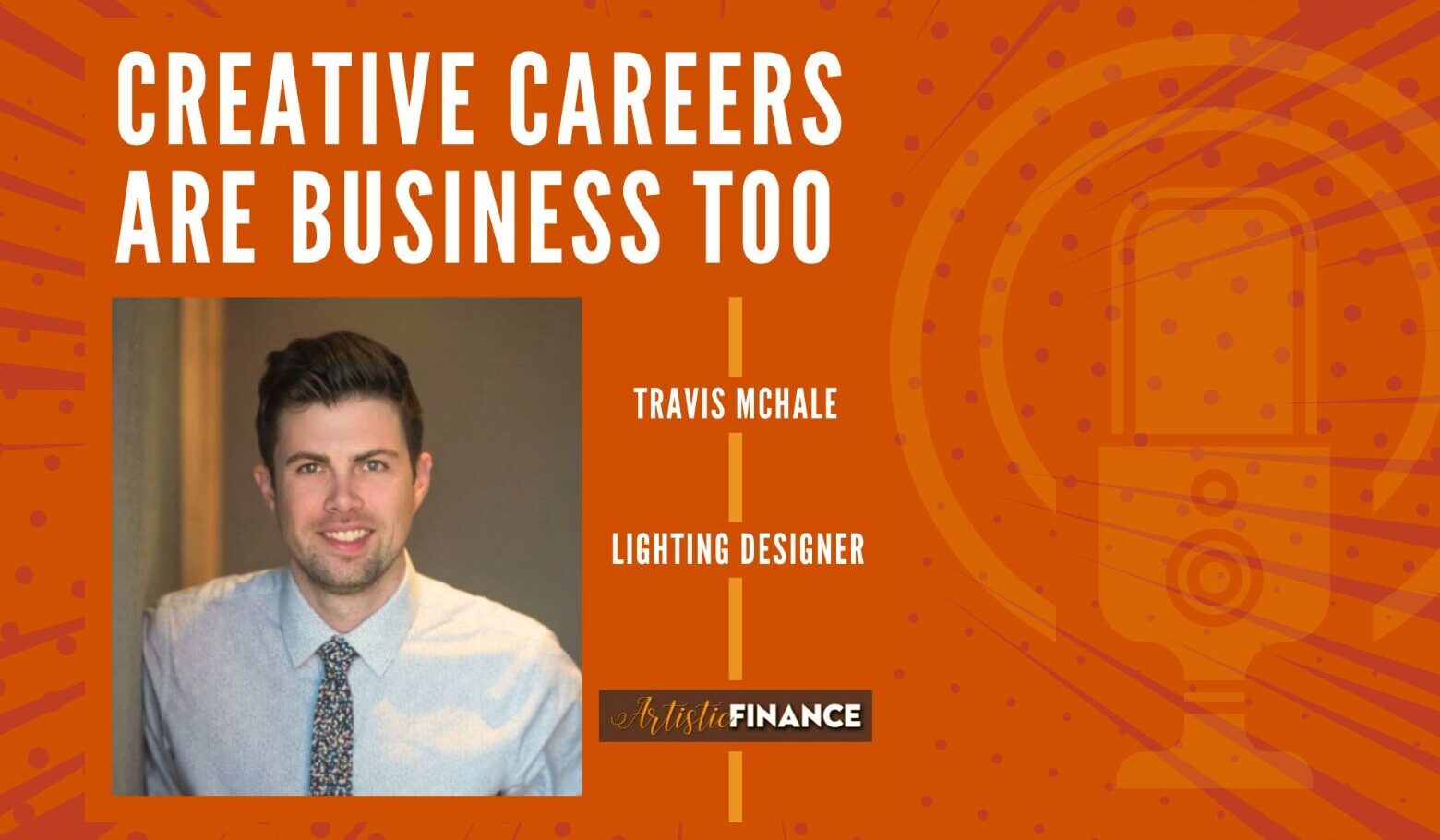Travis McHale: The Business of Theater Design

In this episode of Artistic Finance, host Ethan Steimel sits down with lighting designer Travis McHale to explore the financial realities of working in theater design. They discuss topics including self-filing taxes, negotiating rates, investing, managing mortgages, and handling credit card debt. Travis shares insights from his personal financial journey, offering a candid look at both his financial missteps and successes. Below is an insight into some of the topics covered in this Podcast.
How did you handle finances when you started as a lighting designer?
When I started my career, my finances were a mess. I moved to New York with about $3,000 in savings from graduation gifts, but I was making only about $24,000 a year in those early years. My biggest mistake was avoiding money matters due to stress, which led to a cycle of credit card debt. I ignored budgeting and often found myself maxing out cards. While I managed to sustain myself entirely through work in the industry, I didn’t start thinking about financial stability until much later in my career.
What are your thoughts on paying off a mortgage early versus investing?
There’s an argument that keeping a mortgage and investing extra cash is the smarter financial move since mortgages are “good debt.” But for me, I prefer the security of reducing my financial burden. My husband and I pay extra on our mortgage every month, which will shave nine years off our 30-year mortgage and save us around $15,000 in interest. I know that money could be making more elsewhere, but paying down the mortgage feels like a guaranteed win.
What financial habits helped you improve your situation?
The best financial decision we made was buying a home affordably and putting in sweat equity. We bought a small fixer-upper in upstate New York, significantly below market value. Over six years, we’ve tripled its value by making improvements ourselves. Another great habit was finally paying off my credit card debt at age 39, which took over 20 years to fully eliminate. Now, I focus on keeping costs low and finding high-paying work that supports my creative passion projects.
What’s your approach to investing, and why don’t you invest in the stock market?
I actually don’t invest in the stock market outside of my retirement accounts. I fundamentally dislike the concept of the stock market—it feels like an imaginary system where people assign arbitrary values to companies. That said, my retirement savings are invested. I have multiple accounts: a pension through the union (USA 829), a 401(k) from past Broadway work, a Roth IRA, and a 403(b) from my teaching job. I also see homeownership as an investment because our property has gained significant value.
What advice do you have for theater designers or freelancers on managing their finances?
- Understand Your Worth: Freelancers should figure out their day rate, not just take whatever fee is offered. Even in theater, where rates can be fixed, knowing your worth helps in negotiations.
- Pay Yourself First: Try to save something from every paycheck, whether it’s for taxes, retirement, or an emergency fund.
- Reduce Debt Early: Credit card debt is a huge burden. If you can, pay more than the minimum balance, and avoid accumulating new debt.
- Invest in Your Career Smartly: I bought lighting gear in high school and rented it out—small investments can sometimes make a difference in your career.
- Be Aware of Taxes: Keep track of deductions (like per diem for travel) and consider working with an accountant, especially if your income is primarily 1099-based.
Key Takeaways from the Episode
- Credit Card Debt is a Common Trap
Many young theater professionals fall into debt early on. Travis emphasizes that paying off debt can be a life-changing financial move. - Homeownership Can Be a Game-Changer
Buying a modest fixer-upper and improving it with sweat equity significantly increased his net worth. - Day Rates Matter
Understanding your value as a freelancer helps ensure you’re getting paid appropriately. - Retirement Planning is Essential
Union pensions are helpful but not enough to live on alone; contributing to personal retirement accounts is crucial. - You Don’t Have to Love Investing to Be Smart with Money
Even if you don’t invest heavily in stocks, saving and securing financial stability through other means (like property or a pension) is just as important.
Listen to this Episode on:
Website / Spotify / Apple Podcasts / YouTube
This episode of the Artistic Finance podcast is hosted by Ethan Steimel.
Back to Home
Editor's Note: At StageLync, an international platform for the performing arts, we celebrate the diversity of our writers' backgrounds. We recognize and support their choice to use either American or British English in their articles, respecting their individual preferences and origins. This policy allows us to embrace a wide range of linguistic expressions, enriching our content and reflecting the global nature of our community.
🎧 Join us on the StageLync Podcast for inspiring stories from the world of performing arts! Tune in to hear from the creative minds who bring magic to life, both onstage and behind the scenes. 🎙️ 👉 Listen now!
